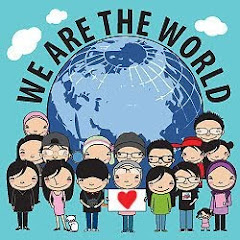(lifted from CTV news, Oct. 1, 2009)
About 60 per cent of the world's natural disasters happen in Southeast Asia, and in the last few years important measures have been taken to limit the impact of these tragedies in the world's most vulnerable region.
The region is fraught with environmental circumstances that challenge rescue and relief organizations, experts say.
The last few days bear witness to just how fragile the region is:
Two earthquakes have hit Indonesia, killing hundreds of people and leaving thousands trapped under rubble.
A deadly Tsunami washed over the nation of Samoa, killing at least 150 people.
Residents of the Philippines are still trying to recover from devastating floods and Vietnam, Cambodia and Laos are bracing for a dangerous typhoon.
These low-lying Southeast Asian countries are located on "extremely active" grounds, said Alison Bird, an earthquake seismologist with the Geological Survey of Canada.
There are several subduction zones in Southeast Asia that not only trigger earthquakes but spark volcanic eruptions and stir tsunamis.
Tsunamis are the most dangerous of natural disasters, Bird said in an interview with CTV.ca Thursday.
"Even the smallest wave can go quite far inland and cause quite the destruction," she said. "You can't outrun these -- they're too fast, too powerful."
Part of what makes the region so vulnerable is the land's topography. There's not a lot to protect residents who live close to the coast from a tsunami or even high winds.
Plus, poverty and dire circumstances has forced hundreds of people to live close to the water, putting them and their shelter in immediate danger of being destroyed.
Smart structures
A key element to helping people survive these disasters is better infrastructure and smarter engineering, said Bird.
"It doesn't take a lot to make structures earthquake resistant," she said. "It's been proven that there's an incredible increase in people's chance of survival."
Building better shelter and training Southeast Asian volunteers about survival has been a key mandate of the Red Cross, particularly since the calamity of the 2004 Indian Ocean tsunami that killed nearly 230,000 people.
The Red Cross has built 5,500 homes in Indonesia since the disaster and has trained 1,200 volunteers in first aid, emergency evacuation, shelter and community preparedness, said Christina Lopes, a spokesperson for the organization.
"Build back better is our policy," she said. "The homes were built with more earthquake-resistant materials and they are better located, further up from the shore."
She said the recent disasters have shown her how much better residents in the area are prepared than they were back in 2004.
People were quicker to evacuate and the impact -- though devastating -- was not quite as deep.
She said she wouldn't be surprised if the Red Cross relied less on international assistance this time around than it did when it dealt with previous disasters.
Tough to overcome
Despite the overwhelming response from disaster relief charities to Southeast Asia, there are some obstacles that simply can't be overcome with charity work.
The challenges of developing countries are always exacerbated during a crisis. Weak and aging infrastructure turns into washed out roadways and bridges that make it impossible for relief workers to deliver supplies in a timely fashion.
"Poverty makes difficult living conditions even more difficult when there's a disaster," said Wesley Normington, a spokesperson for GlobalMedic -- an organization that sends paramedics and police officers from the Greater Toronto Area overseas to help out during a catastrophe.
The organization has sent several people to Indonesia to help with rescue and relief efforts.
"Their sewage system gets backed up which makes flooding worse. People don't have funds to purchase new items for their homes that would help them survive or they can't get themselves to a hospital," he said. "In the third world, they can't afford transportation so they have to walk for days to get to the nearest health care."
However, because the region is so prone to natural disasters, relief agencies have learned from experience over the years and have begun to coordinate their efforts.
Best of all, Normington said, accountability of the charities have drastically improved.
"Accountability is probably the most important thing that has come out after the (2004) tsunami," he said. "Not only are people more aware now but steps have been taken by the international community to make sure charities are more accountable."
Bird agreed that things have certainly improved since the 2004 disaster and credited public education.
"The tsunami really woke a lot of people up and education goes a long way," she said.
***
I want to thank everyone who has extended most valuable and needed help to the Philippines. It seems as though there is no end to all the tragedies. With one out, another one comes in. It is very sad. But there is no devastation so immense that can break a faithful heart. Thank you for crossing the lines, for embracing brotherhood, and for giving LOVE a whole new meaning. I am a mere stranger to many of you but you have not been hesitant. Let us now help our brothers and sisters in Indonesia, Vietnam, and the American Samoa. I will post the international relief organizations here for said countries as soon as I can. Or if you have them, please forward them to me, too. God bless you, my precious, blogger friends, my brothers and sisters.






















